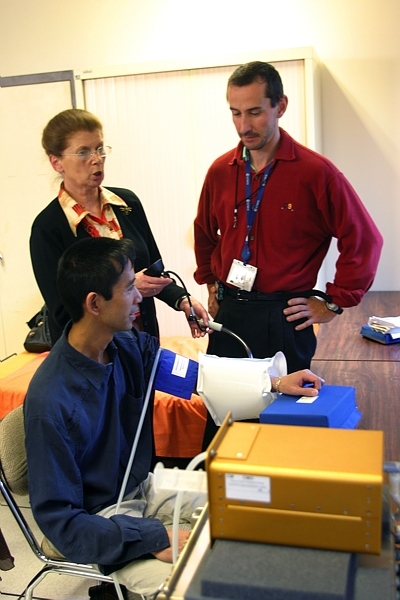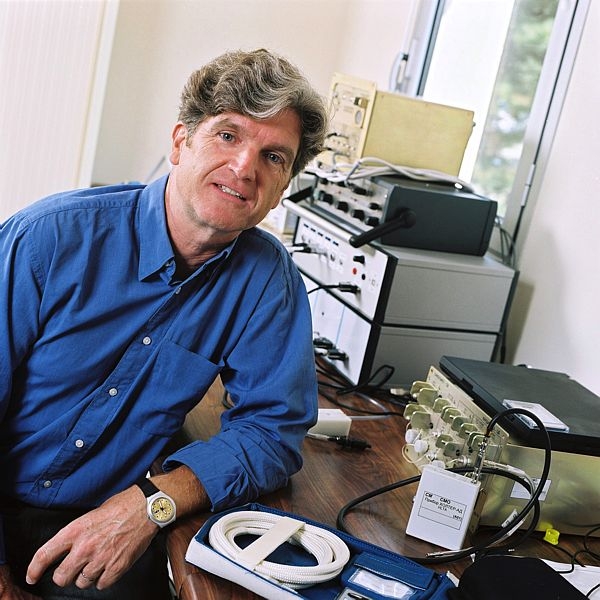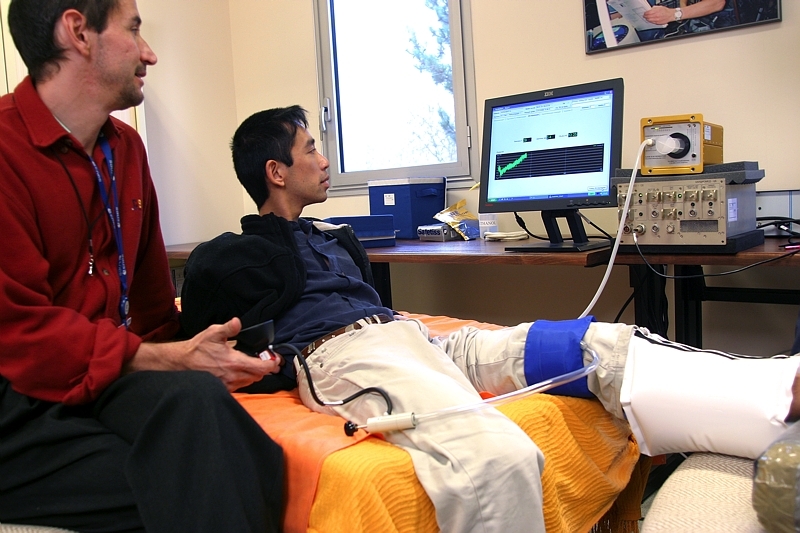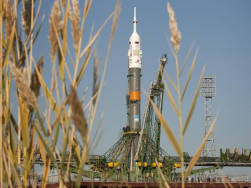26 January 2010
Compact and precise

“We’ve been working with Russia’s IMBP space medicine institute on the cardiovascular system for more than 20 years,” recalls Patrick Aubry, Cardiomed Project Leader at CNES. “Today, CNES has the opportunity to supply them with latest-generation instruments designed to monitor cosmonauts’ health.”
Cardiomed will be used to check heart rate, blood flow, blood pressure and other parameters to ensure that cosmonauts’ cardiovascular systems are functioning properly throughout their mission.
This kind of monitoring is particularly vital in space, where the body is subjected to punishing conditions. With no gravity, the heart and blood vessels become “deconditioned” and less responsive to physical effort.

“The 5 instruments making up Cardiomed will be used together or individually to check cosmonauts’ cardio-vascular parameters. For example, before conducting an extravehicular activity or when they use the Chibis lower-body negative-pressure device, which forces blood down into the legs to prepare them for the return to Earth,” explains Patrick Aubry.
Russian cosmonaut Oleg Kotov will be the first to test out Cardiomed before it goes into routine use with the ISS crew.
Medical data will be downlinked in real time to physicians at the TsUP flight control centre in Moscow, then analysed by teams at IMBP led by Adilya Kotovskaya, who served as Yuri Gagarin’s* personal physician.
Benefits in space and on Earth

Developed by CNES and teams at and Tours university hospitals, Cardiomed will also let scientists probe the cardio-vascular system in depth to better understand certain malfunctions, such as blackouts.
These losses of consciousness are related to poor regulation of arterial blood pressure in the upright position, as a result of which blood accumulates in the legs and deprives the brain of a normal flow.
Blackouts affect not only returning astronauts but also 16% of the population here on Earth, especially elderly people.

“Why are elderly people who rise from bed too quickly in the morning susceptible to blackouts? What happens to their cardio-vascular system? This is one of the questions scientists want to answer,” says Patrick Aubry. “That will enable them to better understand the causes and prevent such complications.”
Cardiomed is now ready to head for the ISS inside the Russian Progress spacecraft from Baikonur.
It will become an integral part of Russian medical systems on the ISS on 5 February and is expected to monitor cosmonauts for the next 5 years.
* The 1st man in space, in 1961.